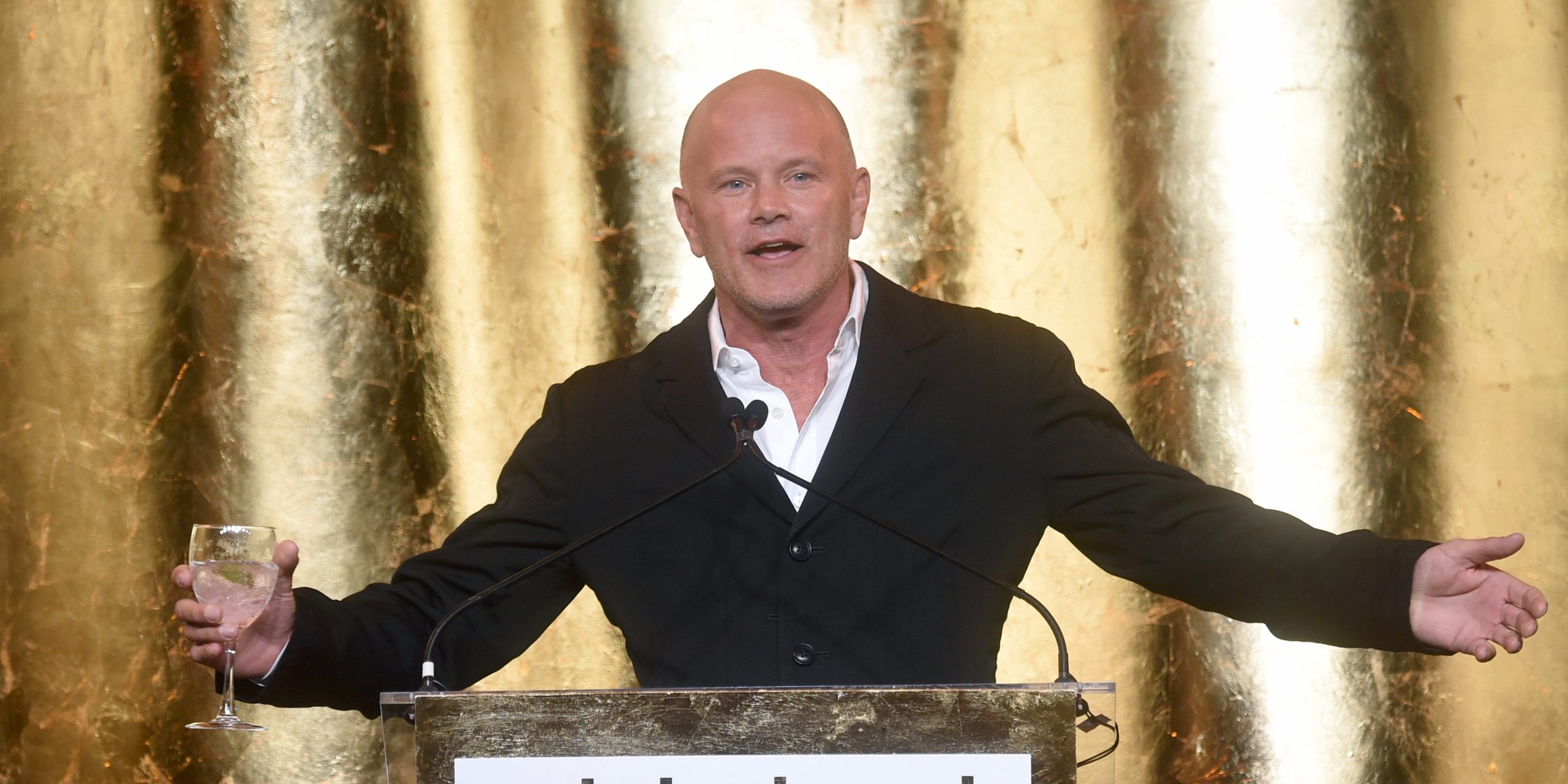
Jamie McCarthy/Getty Images
- MicroStrategy, Galaxy Digital and other bitcoin holders soared on the markets last week.
- Tesla’s purchase of $1.5 billion in bitcoin was the catalyst, bringing more attention to crypto.
- But bitcoin’s volatility and energy use are obstacles to widespread adoption by firms.
- Sign up here for our daily newsletter, 10 Things Before the Opening Bell.
Companies that hold bitcoin on their balance sheet soared on the stock market last week, after Elon Musk’s Tesla announced it had bought $1.5 billion of the cryptocurrency, sending the price to an all-time high of above $48,000.
Business intelligence company MicroStrategy had risen around 25% for the week as of Thursday close. Mobile payments firm Square was up around 12% over the same period, and investment group Galaxy Digital had jumped roughly 36%.
Tesla’s bitcoin purchase not only sent the digital currency’s price skyrocketing, but turned a spotlight on firms that already hold it in their virtual vaults.
Then BNY Mellon and Mastercard lent more credibility to bitcoin and cryptocurrencies on Thursday. Mastercard announced it will allow merchants to accept select cryptocurrencies on its network starting later this year. And Bank of New York Mellon said it will issue, hold, and transfer bitcoin for clients in the future.
“You’re going to see every company in America” adding bitcoin to their balance sheets, Galaxy Digital boss Michael Novogratz told Bloomberg TV on Monday. His company holds around 16,400 bitcoin in its treasury, Forbes reported, worth around $760 million on Friday morning.
The question investors, analysts and company treasurers asked themselves last week was: is Novogratz right?
Analysts say bitcoin's volatility make it a risk for firms
Tesla's investors did not seem so convinced by the move last week, with the stock down around 5% for the week as of Thursday close.
Shareholders may have been worried about the extra risk Tesla has taken on. Bitcoin is highly volatile. It plunged from around $19,000 at the end of 2017 to below $4,000 at the start of 2019.
Jerry Klein, managing director at Treasury Partners, said it was an "unusual" use of corporate cash. Normally, spare money is put in safe assets like money-market funds or bank deposits.
Chief financial officers "are willing to accept risk in their overall business, but not with the cash on their balance sheet," he said. "While bitcoin has been surging in recent months, it's been very volatile over the past few years."
JPMorgan analysts were also unconvinced. "The main issue with the idea that mainstream corporate treasurers will follow the example of Tesla is the volatility of bitcoin," they said in a note.
Another issue is the climate implications of bitcoin, as the cryptocurrency takes a lot of computing power to "mine". Bitcoin currently uses more energy per year than the Netherlands and slightly less than Norway, according to a Cambridge University tool.
Bitcoin's massive energy use could be a turn-off for investors, as markets increasingly focus on climate change. And it could dent the green reputation of alternative-energy pioneers like Tesla.
Tesla and bitcoin tap into new generation
MicroStrategy boss Michael Saylor argues that bitcoin is a good asset for companies to hold in a world where record amounts of stimulus raise the chances of inflation and the erosion of the value of currencies.
MicroStrategy holds just under 71,000 bitcoin, a February filing showed, which was worth roughly $3.3 billion on Friday.
Saylor told Bloomberg TV that he thinks companies will start wanting "a non-sovereign, safe-haven store of value." He said firms are soon "going to realize that bitcoin does the job of gold better, and you're seeing all of the institutional flows move out of gold into bitcoin."
Novogratz suggested Elon Musk and Tesla were not just turning to bitcoin for its potential as a store of value. The company is part of a growing movement behind alternative assets, he said.
"One of the things that connect bitcoin, and Tesla and solar stocks and ESG investing is millennials and Gen Z, young people are buying into the future," he told Bloomberg.
"And they see cryptocurrencies - bitcoin and other cryptos - as their currencies," he said.